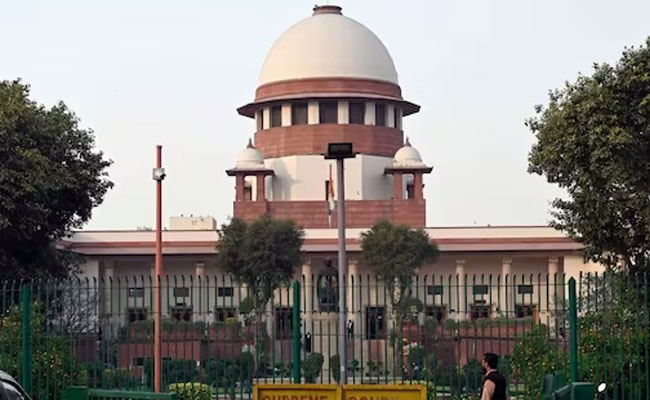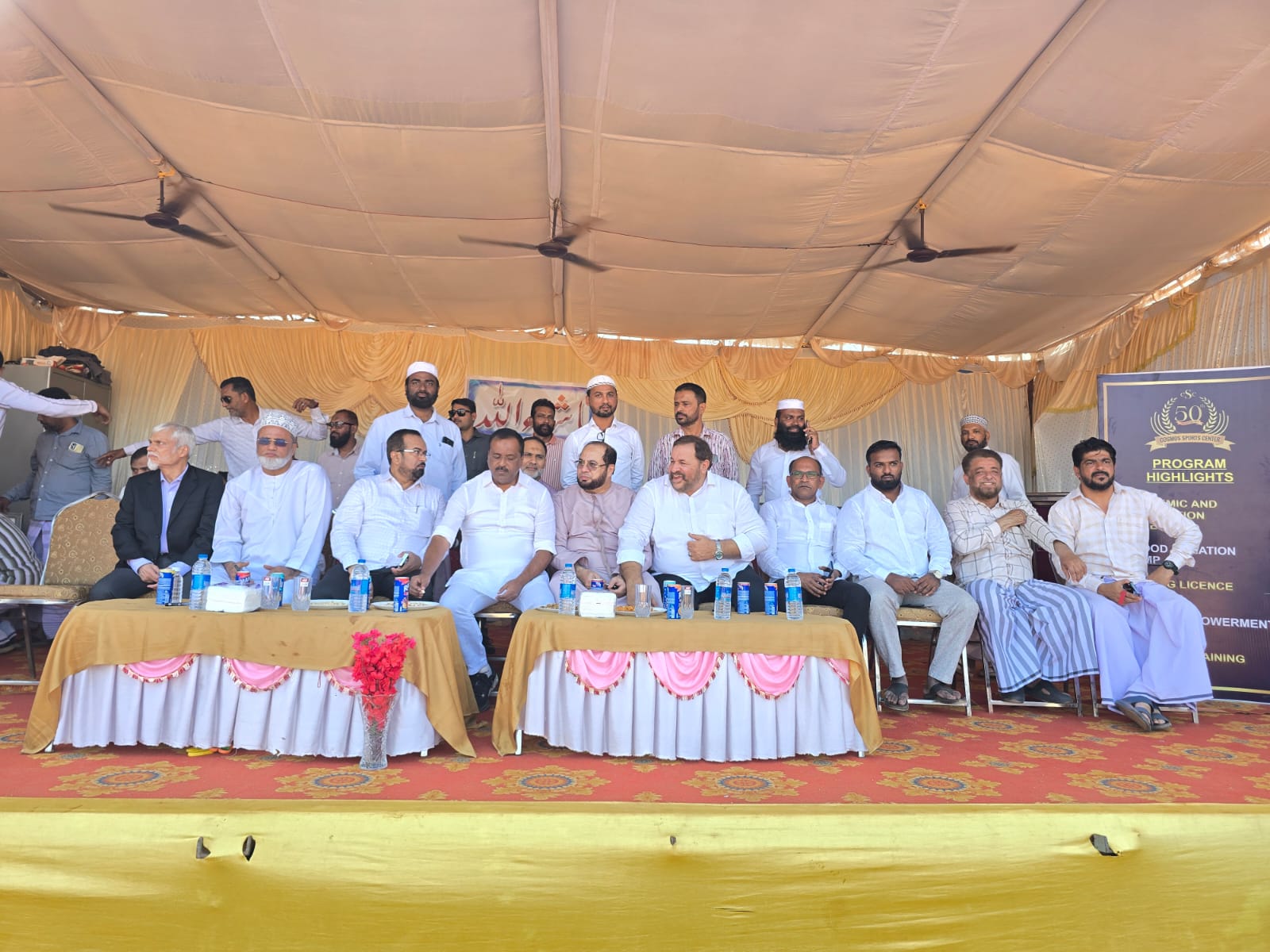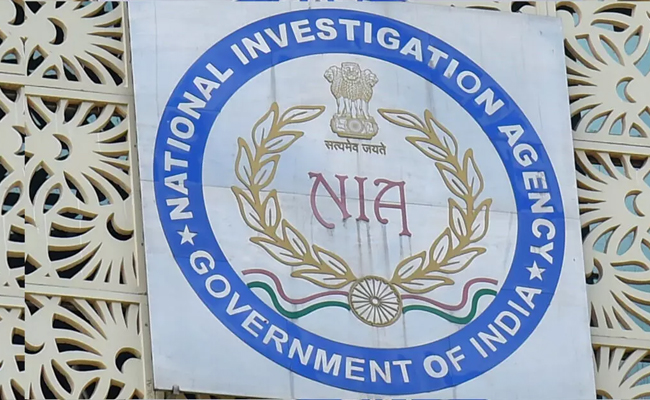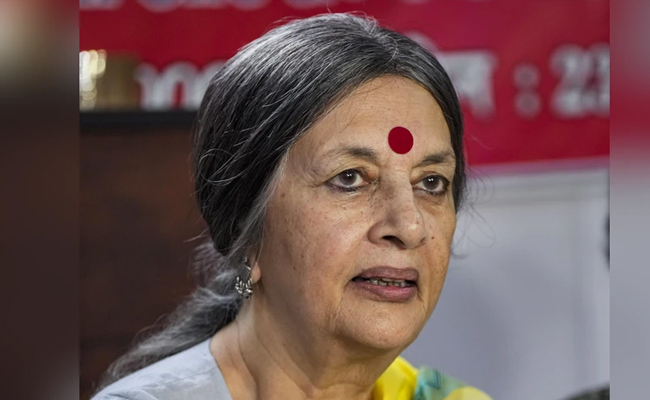New Delhi (PTI): The Karnataka government has described as "wholly misconceived" Tamil Nadu's plea seeking a direction from the Supreme Court that it be asked to release 24,000 cusecs of Cauvery water daily for standing crops.
The Karnataka government, in an affidavit filed in the top court, has said Tamil Nadu's plea was based on an incorrect assumption that "the current water year is a normal water year and not a distressed water year".
Rainfall has been 25 per cent lower and the water inflow into Karnataka's four reservoirs 42.5 per cent lesser, the affidavit said, adding that the stipulated release shall not be applicable this year.
According to the affidavit, Karnataka said the southwest monsoon has largely failed so far during the current water year.
Due to the same, a "distress condition" has arisen in the Cauvery basin in Karnataka.
"Karnataka, therefore, is not obliged to and it cannot be compelled to ensure water as per the stipulated relief is prescribed for the normal year," the affidavit stated.
The top court is scheduled to hear Tamil Nadu's plea on Friday.
A bench headed by Chief Justice of India DY Chandrachud had earlier said that a fresh bench will be set up to hear the decades-old dispute between Tamil Nadu and Karnataka over sharing of the Cauvery's water.
Appearing for Tamil Nadu, senior advocate Mukul Rohatgi had said an application was filed by the state seeking the release of water for August that has been ordered by the Cauvery Water Management Authority.
Rohatgi had told the apex court that a bench would have to be constituted to hear the matter.
On August 11, Tamil Nadu said it had no other option but to approach the apex court to get its genuine share of the Cauvery's water.
It had contended that in a change of stand, Karnataka was prepared to release only a reduced quantum of 8,000 cusecs (cubic foot per second) every day.
Referring to the deliberations of the Cauvery Water Management Authority in Delhi in August, Tamil Nadu Water Resources Minister Duraimurugan had said the requirement for the Cauvery's water was emphatically put forth by state officials.
"However, Karnataka as usual changed its stand and categorically said that it could only release 8,000 cusecs and that too only till August 22," he had said.
The minister had said it was unanimously decided at a meeting of the Cauvery Water Regulatory Committee on August 10 that 15,000 cusecs per day would be released by Karnataka to Tamil Nadu for 15 days.
"Hence, the Tamil Nadu government has no other option but to approach the Supreme Court. Soon, a case will be filed in the apex court. Justice will win and we will get water and Chief Minister MK Stalin-led government is determined to get water," he had said.
The combined storage capacity of the four dams in Karnataka is 114.571 tmc ft (thousand million cubic feet) and it has 93.535 tmc ft storage, which is about 82 per cent, the minister had said.
Duraimurugan had alleged that Karnataka does not "have a heart" to share water with Tamil Nadu though it had enough water.
Let the Truth be known. If you read VB and like VB, please be a VB Supporter and Help us deliver the Truth to one and all.
Mumbai (PTI): In view of Argentine superstar footballer Lionel Messi's visit to Mumbai on Sunday, the city police are implementing stringent security measures, like not allowing water bottles, metals, coins inside the stadiums and setting up watchtowers to keep an eye on the crowd, officials said.
The police also said taking extra care to avoid any stampede-like situation and to prevent recurrence of the chaotic situation that unfolded in Kolkata during Messi's visit on Saturday as thousands of fans protested inside the Salt Lake stadium here after failing to catch a clear glimpse of the football icon despite paying hefty sums for tickets.
Messi is expected to be present at the Cricket Club of India (Brabourne Stadium) in Mumbai on Sunday for a Padel GOAT Cup event followed by attending a celebrity football match. He is expected to proceed to the Wankhede Stadium for the GOAT India Tour main event around 5 pm.
"In view of Lionel Messi's visit to Mumbai, the police are geared up and have put in place a high level of security arrangements in and around the stadiums located in south Mumbai. Considering the chaos that prevailed in Kolkata and the security breach, we have deployed World Cup-level security arrangements at Brabourne and Wankhede stadiums," an official said.
Expecting heavy crowd near the stadiums during Messi's visit, the city police force has deployed more than 2,000 of its personnel near and around both the venues, he said.
As the Mumbai police have the experience of security 'bandobast' during the victory parade of ICC World Cup-winning Indian team and World Cup final match at the Wankhede Stadium, in which over one lakh cricket fans had gathered, we are prepared to handle a large crowd of fans, he said.
"We are trying to avoid the errors that occurred in the past," the official said.
There is no place to sneak inside the stadiums in Mumbai like the Kolkata stadium, according to him.
The police are also asking the organisers to provide all the required facilities to the fans inside the stadium, so that there will be no chaos, he said, adding the spectators have purchased tickets in the range of Rs 5,000 to 25,000. After paying so much of amount, any spectator expects proper services, while enjoying the event, he said.
The police are expecting 33,000 spectators at the Wankhede Stadium and over 4,000 at Brabourne Stadium. Besides this, more than 30,000 people are expected outside and around the stadiums just to have a glimpse of the football sensation, he said.
The organisers responsible for Messi's India visit recently came to Mumbai to discuss security arrangements. During the meeting, the Mumbai police asked them not to take the event lightly, according to the official.
After those requirements were fulfilled, the final security deployment was chalked out, he said.
Police has the standard procedure of the security arrangements inside the Wankhede Stadium, where people are barred from taking water bottles, metals objects, coins. Police are setting up watch towers near the stadiums and there will be traffic diversions, so that there is maximum space available to stand, according to the official.
Police are also appealing to the spectators to use public transport service for commuting and avoid personal vehicles to reach south Mumbai.
To avoid any stampede-like situation, police are also taking precautionary measures and will stop the fans some distance ahead of the stadium and public announcement systems will be used to guide the crowd. Barricades will be placed at various places to manage the crowd.
In case the crowd swells up beyond expectation, the police will divert people to other grounds and preparations in this regard underway, he said.
Additional police force has been deployed in south Mumbai to tackle any kind of situation, he said.





